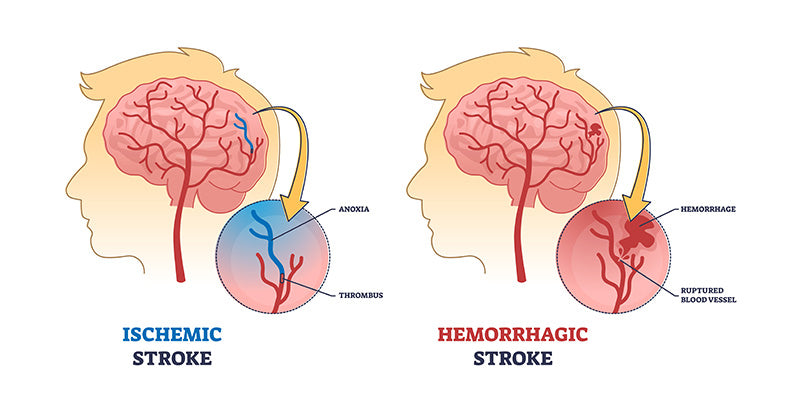HealthCert Education
Stroke and Transient Ischaemic attacks (TIAs)
Stroke and Transient Ischaemic attacks (TIAs)
This comprehensive course on "Strokes and Transient Ischaemic Attacks (TIAs)" is designed for healthcare professionals to enhance their knowledge and skills in stroke prevention, diagnosis, and management. Covering both clinical and practical aspects, this course delves into the causes, symptoms, treatment, and long-term care of stroke and TIA patients. Participants will explore real-world case discussions, receive updates on evidence-based practices, and learn how to manage common complications. Ideal for practitioners in primary care, this course empowers participants to effectively manage stroke risks and improve patient outcomes.
 4.0 hrs EA | 6.0 hrs RP | 0.0 hrs OM
4.0 hrs EA | 6.0 hrs RP | 0.0 hrs OM
Couldn't load pickup availability
SKU:SHOP-A2GEM
View full details
-

FLEXIBLE TIMING
-

100% ONLINE
-

accredited Course
-

Expert instructor
The course on Strokes and Transient Ischaemic Attacks (TIAs) provides a deep dive into the key elements of stroke prevention, diagnosis, treatment, and long-term care. It is designed for medical professionals, particularly in primary care, who play a crucial role in managing cerebrovascular conditions. The course is divided into six detailed units, each covering essential topics:
Unit 1: Introduction and Definitions
This unit introduces the global burden of strokes and TIAs, defining their impact on mortality and morbidity. It provides detailed explanations of stroke and TIA classifications, causes, and the distinction between the two. It covers the latest updates in diagnostic criteria for both ischemic and hemorrhagic strokes.
Unit 2: Clinical Presentation
The second unit explores the varied clinical presentations of stroke, focusing on symptoms based on vascular territory involvement. It also discusses stroke mimics, such as migraines and hypoglycemia, and the importance of accurate differential diagnosis.
Unit 3: Investigation, Acute Management, and Secondary Prevention
This unit covers mandatory and discretionary investigations, including imaging and laboratory tests crucial for stroke diagnosis. It also emphasizes acute stroke management, including the use of antithrombotics and the role of endovascular clot retrieval. Secondary prevention strategies, including lifestyle modifications and pharmacological interventions, are detailed.
Unit 4: Risk Modification and Primary Stroke Prevention
In this section, participants will learn about modifiable risk factors, such as hypertension, diabetes, and obesity, and how to prevent strokes through lifestyle changes. Emphasis is placed on physical activity, diet (particularly the Mediterranean diet), and the importance of managing atrial fibrillation and cholesterol.
Unit 5: Complications in Stroke Survivors
The fifth unit addresses common complications that stroke survivors face, such as depression, sexual dysfunction, fatigue, and driving restrictions. Strategies for managing these complications and improving patient quality of life are discussed, with special focus on post-stroke depression and the importance of early detection.
Unit 6: A Special Note on TIAs
The final unit highlights the urgency of treating TIAs as medical emergencies. It covers the risks of recurrent strokes following a TIA, the ABCD2 risk stratification score, and key management steps, including the use of statins, antithrombotics, and lifestyle changes. Participants will learn the importance of timely intervention to prevent future cerebrovascular events.
This course is ideal for healthcare professionals seeking a structured, evidence-based approach to managing strokes and TIAs, improving patient outcomes, and staying updated with best practices in stroke care.
- Identify and manage the risk factors for cerebrovascular insufficiency to reduce the incidence of cerebrovascular accidents and transient ischaemic attacks.
- Apply a multi-disciplinary approach to the management of a patient who has persisting neurological deficits following a cerebrovascular accident.
All degree qualified medical practitioners.
CPD Hours:
- Education hours: 4.0
- Reviewing performance hours: 6.0
- Measuring outcome hours: 0.0
Accreditations:
Royal Australian College of General Practice (RACGP) #942838
Australian College of Rural and Remote Medicine (ACRRM) #34185
Study Mode:
100% online
Study duration:
10.0 hrs self-paced

ABOUT THE PRESENTER
Dr Valia Francis
This course is presented by Dr Valia Francis.
Dr Francis enjoys all aspects of general practice and is especially interested in skin medicine, women's health and medicine of the elderly. Originally from Greece, Dr Francis is involved in teaching medical students as a Conjoint Lecturer in the Rural Medical School of Port Macquarie as well as teaching registrars. Dr Francis is a FRACGP, has a Bachelor of Medicine and Bachelor of Surgery, Bachelor in Sciences (First class Honours in Neuroscience), Diploma in Child Health, Diploma of the Royal College Obstetricians and Gynaecologists and Diploma of Family Planning & Sexual Health.

